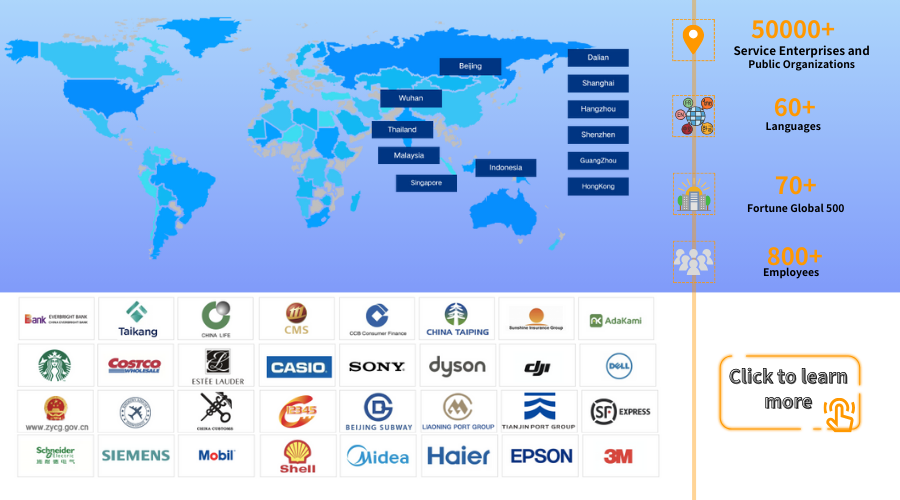Facing hundreds or even thousands of inquiry messages every day, customer service representatives (CSRs) often find themselves trapped in dilemmas: "repeatedly explaining the same issue," "scrambling to find answers," and "being held back by simple questions from handling complex needs." The value of online intelligent
customer service goes far beyond "reducing the workload of human agents"; it lies more in reconstructing the customer service workflow through technology—freeing CSRs from mechanical labor and allowing them to focus their energy on services that truly require "human touch."
I. Keep 80% of Repetitive Questions "Outside Human Intervention" to Free Up Time for High-Value Needs
In CSRs’ daily work, at least 80% of inquiries are "standardized questions"—such as "How long will delivery take?" "How to get a refund?" and "How to use a coupon." These questions do not require human judgment but consume a great deal of time.
The automatic response function of intelligent customer service acts like a "first filter," directly handling such high-frequency questions:
- When a user asks, "When will my order be shipped?" the system can automatically link to the order information and pop up a response like "Your order was shipped at 15:00 today, with tracking number XXX. Estimated delivery time is 3 days"—no need for CSRs to manually check and copy-paste the information.
- For multi-step questions like "return/refund process," the system lists steps clearly: "① Click on 'Personal Center' → ② Select the order to return → ③ Upload photos of the product," which is 3-5 times faster than a human typing.
Data from an e-commerce platform shows that after launching intelligent customer service, the average number of manual inquiries handled by each CSR per day dropped from 120 to 45. The saved time was used to follow up on complaint disputes and handle personalized needs (e.g., "Can the size of a custom product be modified"), and the resolution efficiency of such high-value issues increased by 60%.
II. Turn CSRs from "Memory Masters" into "Precision Searchers" to Reduce Information Retrieval Costs
The biggest frustration for CSRs is not "difficult questions" but "knowing the answer exists but not being able to find it." For example, if a user asks, "How to upgrade my membership level," the CSR needs to locate the specific criteria of "consumption amount + activity level" from over 1,000 rules in the knowledge base; or if a user mentions, "I still haven’t received the free gift mentioned last time," the CSR has to sift through 3-day-old chat records to recall details.
The auxiliary search function of intelligent customer service serves as a "real-time brain" for CSRs:
- Knowledge Base Linkage: When the CSR enters the keyword "membership upgrade," the system automatically pops up relevant rules and highlights key information like "Automatic upgrade when cumulative consumption reaches 5,000 yuan," avoiding the need for CSRs to scan long documents line by line.
- Historical Conversation Sync: When a query is transferred to a human agent, the system automatically pins the chat history between the user and the intelligent customer service (including user-provided information such as order number and contact details) at the top of the screen. This eliminates the need for CSRs to repeatedly ask, "May I have your order number?"
According to feedback from a customer service team at an education institution, with the assistance of intelligent customer service, the average time spent searching for information decreased from 40 seconds to 10 seconds. Inquiries that previously required "searching while chatting" can now be answered "instantly," and user satisfaction increased by 28%.
III. Replace "Experience-Based Judgment" with "Data Insights" to Give CSR Work Clear Direction
Another major cause of low CSR efficiency is "blind busyness"—not knowing which questions take the most time, which scripts are most effective, or which users require priority follow-up. The data analysis capability of intelligent customer service helps customer service teams identify optimization directions:
- High-Frequency Question Statistics: The system automatically generates a "Top 10 Daily Inquiries" list. For instance, if "Coupon cannot be used" ranked first for 3 consecutive days, the customer service supervisor can push the technical team to prioritize fixes, reducing the number of such inquiries at the source.
- Script Effectiveness Analysis: By comparing response scripts used by different CSRs, the team discovered that replacing "You must" with "You can" reduced the user complaint rate by 40%. These high-quality scripts were then incorporated into the standard response library.
- User Tier Reminder: When a VIP user sends an inquiry, the system automatically marks the user in red and prompts, "This user spent over 20,000 yuan in the past 30 days." CSRs can then prioritize the inquiry and provide exclusive services (e.g., "We will arrange expedited processing for you").
A financial platform used data analysis from its intelligent customer service to find that inquiries about "wealth management product redemption time" were the most time-consuming (taking an average of 2 minutes per response). The platform then optimized the intelligent customer service’s response logic, enabling the system to directly display key information like "Funds arrive in T+1 days." As a result, the human intervention rate for this type of question dropped by 70%, allowing CSRs to focus on more complex inquiries such as "fund security."
IV. Achieve "Human-Machine Collaboration" Rather Than "Human-Machine Replacement" to Return CSRs to the "Essence of Service"
A truly efficient online intelligent customer service system is not meant to "replace humans" but to "amplify human value." It acts as a "capable assistant" to CSRs: handling simple questions independently, laying the groundwork for complex issues, and enabling CSRs to focus on work that machines struggle to replace—such as "understanding user emotions" and "resolving personalized needs."
For example, if a user files a complaint about a "damaged product," the intelligent customer service first collects basic information (e.g., product photos, purchase time) and adds a note ("User is emotionally upset; prioritize comfort") when transferring the case to a human agent. When the CSR takes over, there is no need for further information verification—they can directly say, "I’ve seen the photos you sent. This is indeed our mistake. We will arrange a replacement for you immediately and offer an additional 50-yuan coupon as compensation." This not only saves time but also makes the user feel valued.
For CSRs, the ultimate significance of intelligent customer service is to transform them from "information transmitters" into "service decision-makers." When mechanical tasks are simplified, they have more energy to think about "how to make users more satisfied" and "how to retain customers for the company"—this is the dual improvement of both efficiency and value in customer service work.
Udesk omnichannel intelligent customer service system integrates a cloud call center, online customer service, and ticketing system into one platform. It connects to more than 20 communication channels at home and abroad, enabling barrier-free communication with your global customers. By establishing connections with customers through multiple channels, it boosts sales performance, improves service quality, and delivers an excellent customer experience. Real-time insight into customer intentions makes lead generation and conversion easier than ever!

 Customer Service& Support Blog
Customer Service& Support Blog


